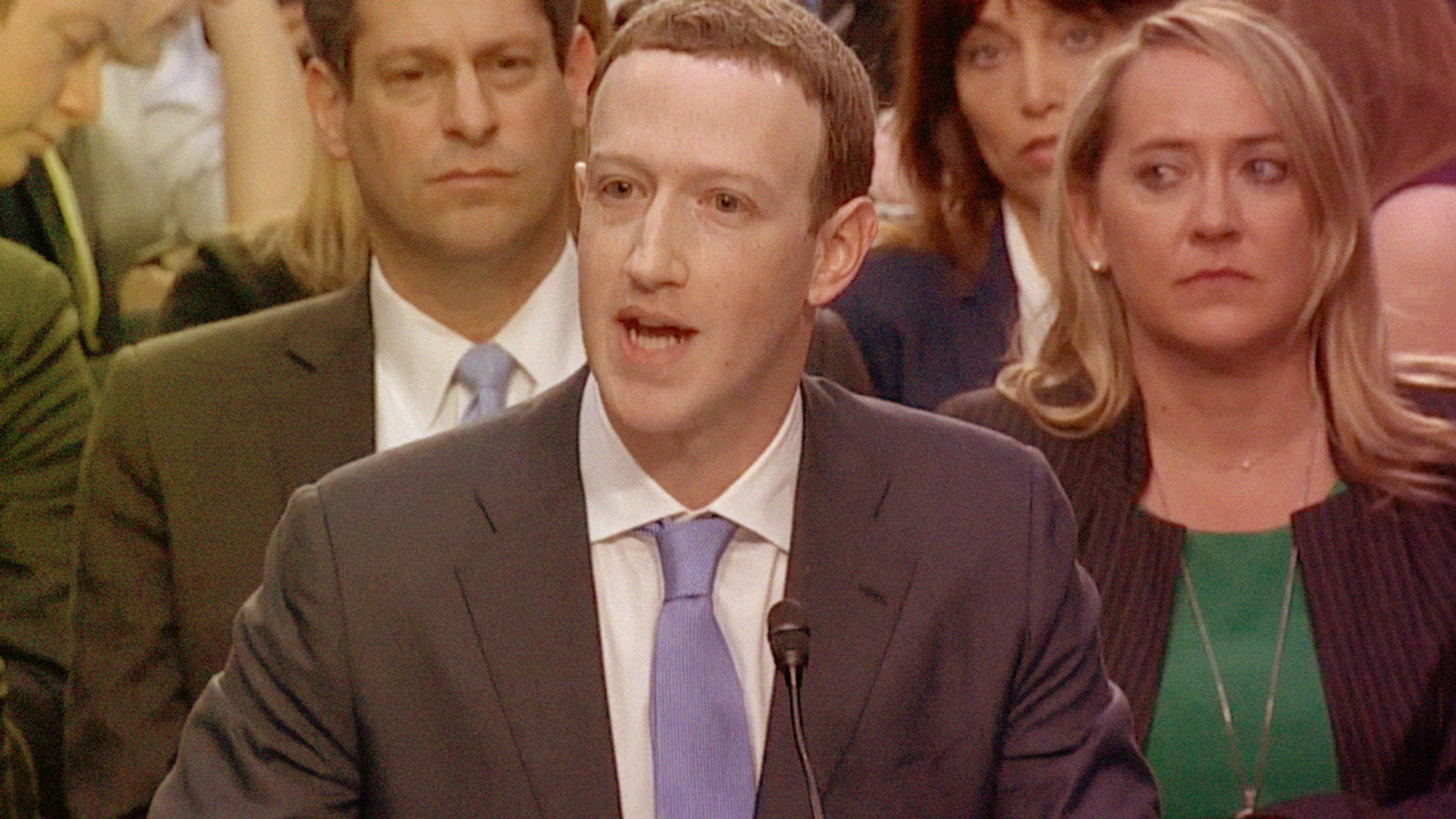Just as Mark Zuckerberg was winding down his appearance before the Senate’s Commerce Committee yesterday, a photo started making the rounds on Twitter. At some point during the five-hour saga, AP photographer Andy Harnik took a shot that happened to capture a few pages of the Facebook CEO’s notes, which reveal how his team of hundreds of advisers and consultants prepped him to answer what they expected would be uncomfortable questions–such as whether Facebook is a monopoly, if Zuckerberg should resign, and why the company’s workforce lacks diversity.
And they’re more interesting than the hearing, which was pure theater designed to make Zuckerberg look responsible (that worked, since Facebook shares had their best day in two years, going up 4.5%) and lawmakers look reasonably well-informed. Aside from a few tense moments involving senators Lindsey Graham and Kamala Harris, Zuckerberg wasn’t really pushed on the issues, and he didn’t deliver answers to the questions we’ve all been asking.
By contrast, everything about the notes–their substance and tone, the motivations they reveal, the way they were made public, and their virality–say so much more than the 17,969 words spoken by Zuckerberg during the hearing (yes, I counted them).
Here’s a few reasons why:
- The notes are at turns combative and conciliatory, expressing accountability but pointing the finger at others. (There’s a whole section on combating Tim Cook’s criticisms, including the line: “Lots of stories about apps misusing Apple data, never seen Apple notify people.”) They reveal what really concerns Facebook: the possibility of new regulations that would disrupt their business model.
- The notes include their own version of the infamous “DO NOT CONGRATULATE PUTIN” memo for President Trump, with a warning on the EU’s General Data Protection Rule, or GDPR, the data privacy legislation that becomes effective next month and is widely expected to pinch Facebook’s revenue. “Don’t say we already do what GDPR requires” reads the top of that section, obviously crafted by Facebook’s lawyers wary of encouraging American lawmakers to pass similar legislation. It goes on to explain: “GDPR does a few things. “Provides control over data use–what we’ve done for years. Requires consent–done a little bit, but now doing more in Europe and around the world.” Nothing to see here, folks.
- In a section on competition, it’s clear that Facebook is worried about tamping down the rhetoric that it’s a monopoly and should be subject to antitrust rules. In the notes, it says that Facebook is only a “small part of the ad market: advertisers have choices too–$650 billion market, we have 6%.” (In reality, Facebook raked in 20% of U.S. online ad revenue in 2017.) And it includes a line about citing competition with China as part of its argument: “Break Up FB? U.S. tech companies key asset for America; break up strengthens Chinese companies.”
- And the very disclosure of these notes says plenty about Facebook and Zuckerberg, who constantly seem to cling to an idealistic view of their mission and the real-world impact of the platform (failing to recognize that partners and third-party apps might use their access to Facebook user data for nefarious purposes). Didn’t they realize that it might not be a good idea to leave such notes in open view in a room crammed with dozens of media photographers and hundreds of people who are all laser-focused on your every gesture? Kinda like trusting Cambridge Analytica to delete that data, no?
Photo of Zuck’s notes, by AP’s @andyharnik pic.twitter.com/wF0WAkDdI4
— Stefan Becket (@becket) April 10, 2018
https://www.youtube.com/watch?v=qAZiDRonYZI&t=1s
Recognize your brand’s excellence by applying to this year’s Brands That Matter Awards before the early-rate deadline, May 3.
